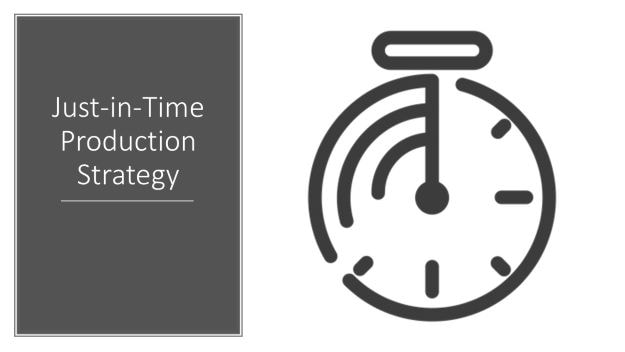This strategy also allows companies to gain advantage over their competition because it creates a business that is flexible and sees the need for effective communication between suppliers and customers. This permits companies to make quick decisions in response to the demands of the market. Customer loyalty is often a direct result of implementing Just In Time strategy.
Storage costs can be a significant drawback for companies. Just In Time allows companies to lower their costs of storage by a large amount since they only require materials at a certain stage. This makes for better flow of money and lowers the amount that is held in stock. Also, this means that there is less need for space to hold the additional goods. Hewlett Packard lowered their inventory quite drastically by implementing Just In Time. Warehouses can be quite expensive and Just In Time eliminates, or greatly reduces, that issue.
It is necessary for employees to be completely involved during the process of production. This increases their attention, skill and self-esteem by allowing them to have a fair bit of responsibility. Employees that are valued by their company, which is reflected through decision-making and similar factors, tend to perform better for the good of the company, instead of their area or department. This helps maintain employee loyalty, which results in less employee turnover and lessened costs related to recruitment. The best benefit for employees, and therefore the company, is raised morale.
Another factor that makes Just In Time very appealing for companies is that the costs that would have otherwise gone to inventory and storage can be used elsewhere, such as marketing, training and other important aspects. The storage space that would have otherwise been used for holding goods (only if it is not an additional warehouse, etc.,) can be used for something more productive.





















